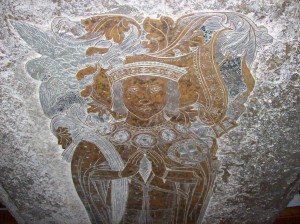 On this day in history, 29th June 1536, Thomas Boleyn, Earl of Wiltshire, was stripped of his office of Lord Privy Seal, an office he had held since January 1530.
On this day in history, 29th June 1536, Thomas Boleyn, Earl of Wiltshire, was stripped of his office of Lord Privy Seal, an office he had held since January 1530.
His demotion came just over a month after the executions of his children, Queen Anne Boleyn and George Boleyn, Lord Rochford, and it was Thomas Cromwell, the king’s right-hand man, who was chosen as his replacement and who was formally appointed on 2nd July 1536.
Also on this day in history…
- 1509 – Lady Margaret Beaufort, grandmother of Henry VIII and the matriarch of the Tudor dynasty, died at Cheyneygates, the Abbot’s house at Westminster. Click here to read more.
- 1537 – Death of Henry Algernon Percy, 6th Earl of Northumberland, a man who had been romantically linked to Anne Boleyn before her relationship with Henry VIII. Click here to read more.
- 1540 – A Bill of Attainder was passed against Thomas Cromwell, Earl of Essex. Click here to read more.
Picture: Photo of Thomas Boleyn’s memorial brass, copyright Tim Ridgway.